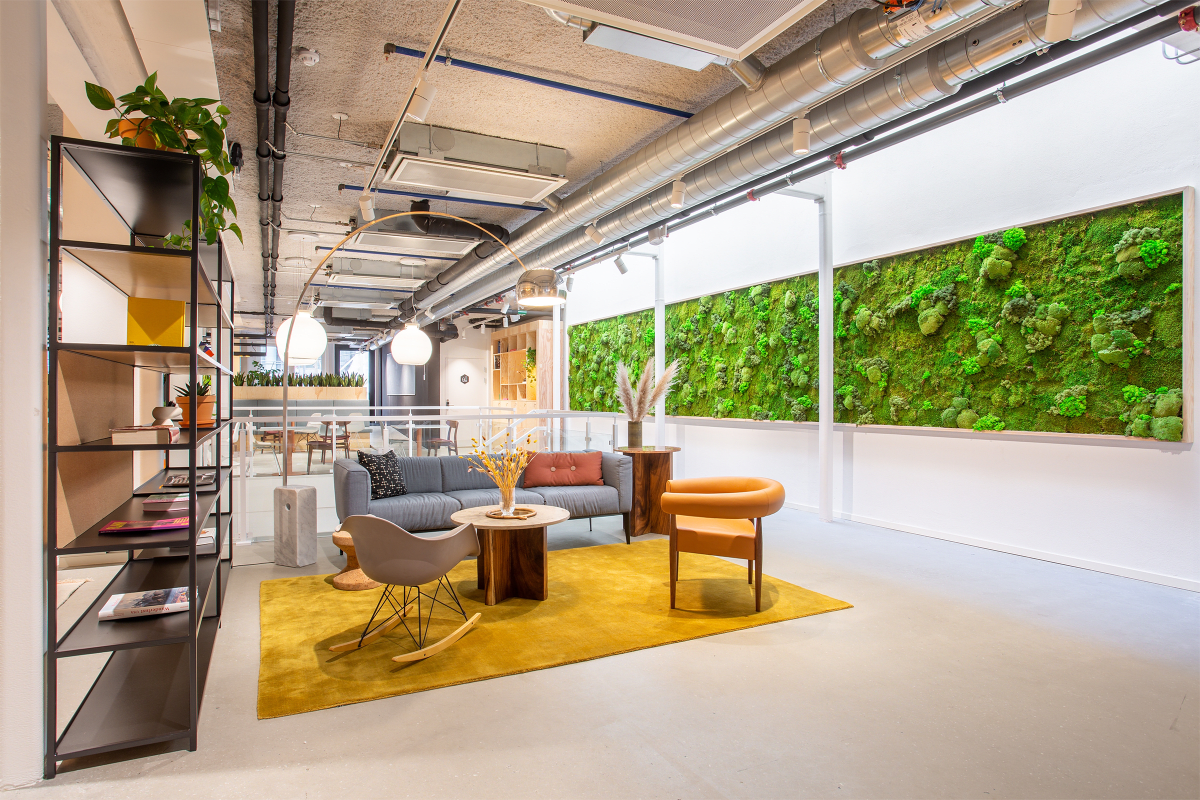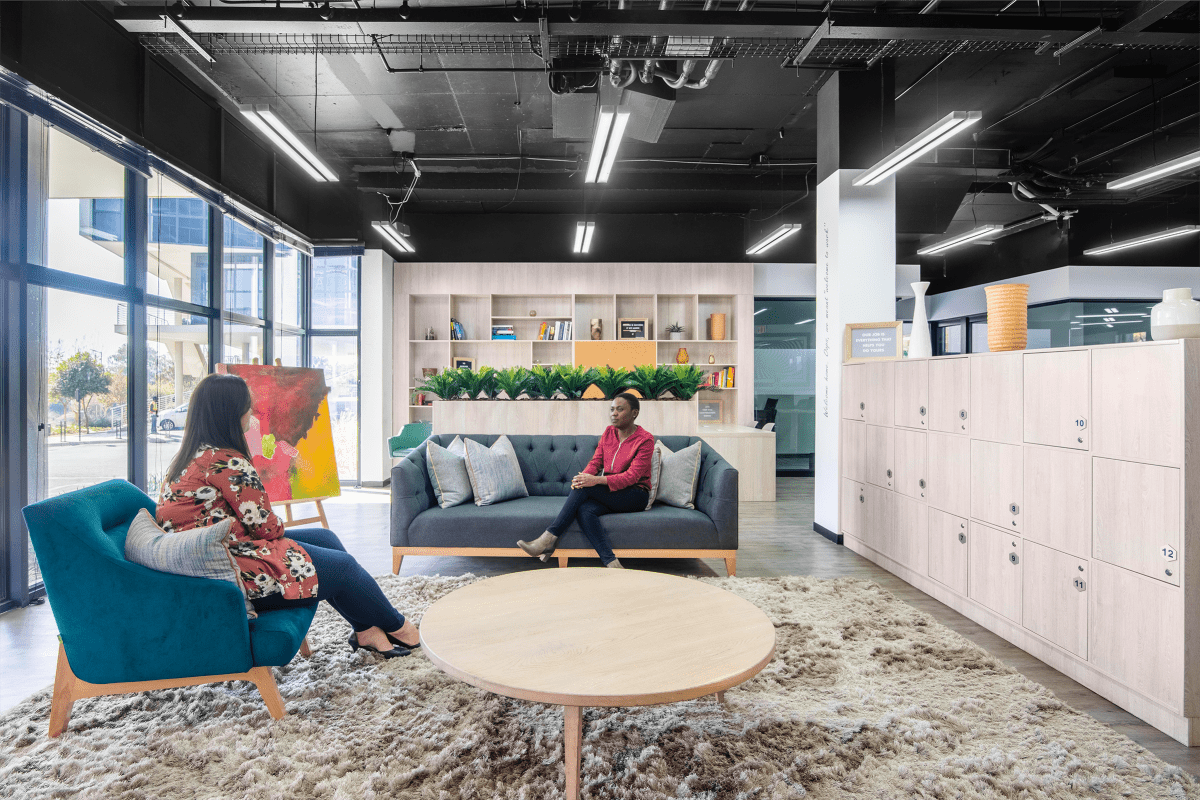In an article written by IWG’s Chief Commercial Officer, Fatima Koning, we explore how hybrid working can offer a vital boost amid the challenges currently facing employers and their people.
More than two years on from the start of Covid-19, businesses and their people face a new set of challenges. From economic instability to political upheaval and the cost of living crisis, there’s a lot to feel uneasy about.
For business leaders, the effect of these worries on their employees’ wellbeing should be a major consideration. Why? Because happier, healthier teams make for more successful firms.
According to the University of Oxford’s Said Business School, happiness has a clear effect on productivity. Their research showed that employees who rated themselves ‘happier’ not only worked faster and spoke to more clients, they made 13% more sales.
As Chief Commercial Officer at IWG, I’m a passionate advocate for the hybrid model. It’s a powerful enabler of positive change, both for companies and the people who work for them - and it should be at the heart of executives’ current conversations about wellbeing.
Commuting: bad for people, bad for business
In the new, post-pandemic world of work, people’s priorities have shifted. There’s a stronger emphasis on mental, physical and emotional health, and an expectation that work should fit into life rather than the other way around.
Long periods of forced remote working have proved that productivity can be maintained - in some cases, even improved - by giving employees the autonomy and independence to choose where, how and even when they work.
Having benefited from extra time to spend with loved ones, on pursuing hobbies or chasing fitness goals, it’s no surprise that people are loath to trade this in for a return to daily train journeys or traffic jams. IWG research shows that almost half of workers would quit their jobs if asked to return to the office five days a week, and only one in five is now prepared to commute for more than thirty minutes.
The rising cost of travel is likely to make unnecessary commuting an even greater stressor for employees this winter, and should sharpen employers’ thinking about how, when and why they choose to bring people together at the company HQ. While regular get-togethers can be immensely valuable, it’s crucial that they have a clear purpose people can get behind.
Overall, it’s clear that empowering people to achieve a better work-life balance is a win-win. According to Accenture, 63% of high growth firms have embraced ‘productivity anywhere’ models of working, while 69% of negative or no growth companies remain committed to dictating where people work from.
It is also worth remembering that the hybrid model provides a powerful boost for people who might find themselves less able to work in more traditional, 9-5, office-based roles. As a working mother, I know how tough it can be to juggle personal and professional responsibilities - but hybrid working has allowed me to take on a new, more senior role and achieve career highs that might not have been possible otherwise.
This speaks to another key advantage of the hybrid model: its capacity for helping businesses retain, and indeed recruit, top talent. Providing pathways to promotion is motivating and inspiring for employees who might otherwise find themselves feeling low, ‘quiet quitting’ or looking to move on. Meanwhile, our latest research shows that hybrid working is now a key benefit people look for when job-searching. In our survey, 72% of people said they would go without a 10% pay rise if they could retain the option to have flexibility in where they work.
Partnerships that promote health
While Covid-19 has had many negative consequences, one positive was people’s renewed interest in healthy eating and fitness. People who’d previously struggled to find time for cooking became enthusiastic chefs, and the pandemic was associated with a renewed interest in getting fit and healthy with the adoption of the NHS’s Couch to 5k running programme a good example.
But as the cost of living crisis bites, it’s little wonder that more than half of office workers recently surveyed by IWG said they have cancelled or considered cancelling their gym memberships. That’s why we've recently announced partnerships in the UK with BUPA and Hussle, the flexible gym provider. These will make it easier for our customers - whether they’re self-employed, freelance or work full-time for SMEs - to access the type of workplace benefits that are usually open only to those who work for big-name corporations.
By making quality private healthcare, as well as fitness opportunities, more affordable for their people, our partners can build on the wellbeing benefits hybrid work naturally offers. And from a business perspective, investing in such schemes appears to be a no-brainer; according to Deloitte, employers can expect a return as high as £5 for every £1 spent on health and wellness initiatives.
Avoiding isolation
Once a hybrid working policy is in place, it’s vital to make sure that it doesn’t spell loneliness or isolation for team members. We’ve deployed technology that helps to keep people connected and happy at work, creating a virtual ‘neighbourhood’ where there’s constant, supportive chat among teams.
We also recognise that our workspaces have the potential to fill a gap that often appears when people work remotely: a space where networking and collaboration might normally happen between colleagues. Our locations organise events that bring people together from yoga classes to talks from guest speakers and working lunches.
A shared workspace offers support for physical, mental and emotional health that people simply don’t get when solely working from home.
Happier, more productive people
The world’s most progressive companies are now taking a people-first approach to how their teams work. While hybrid working isn’t a silver bullet or cure-all, it is a crucial component of any modern firm’s approach to managing health and wellbeing.
The hybrid model doesn’t just revolutionise the way people work - it revolutionises the way they live.
In the new world of work, employers can actively improve life for their people, and the benefits of this are real for businesses, as well as individuals. Given the turbulent times we’re living through, it’s arguably a responsibility - but it is also an exciting chance that shouldn’t be squandered.
Discover how IWG can help your business boost the health, wellbeing and productivity of your employees with a people-centric hybrid workspace strategy.






